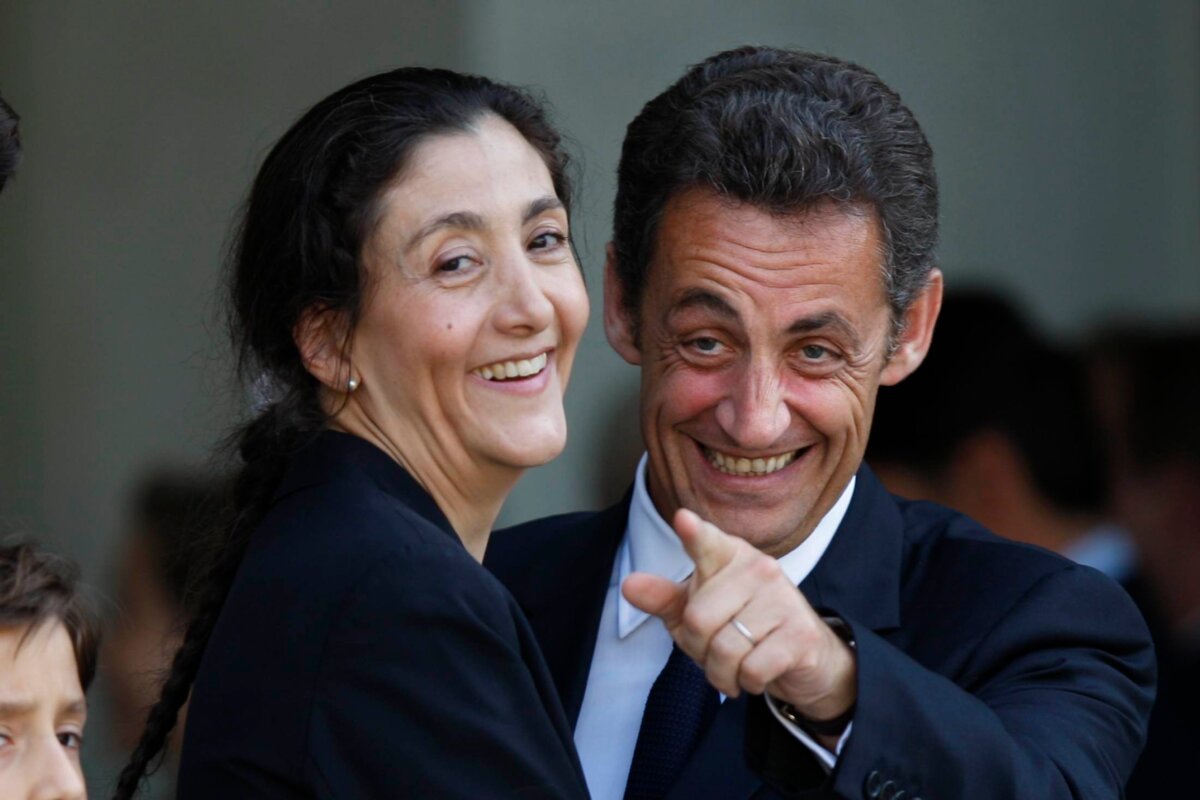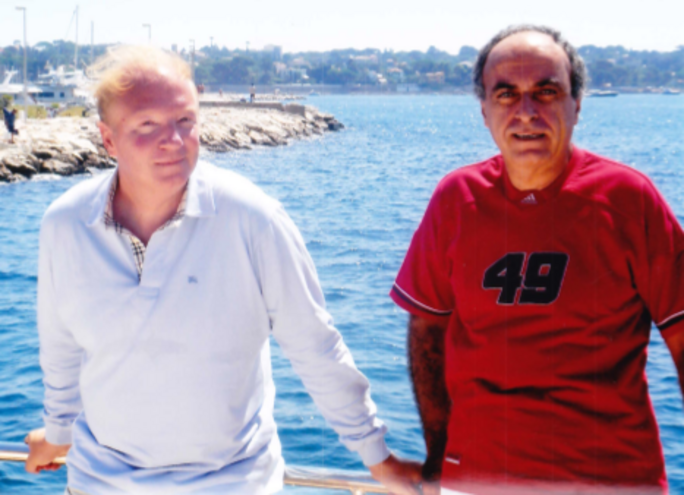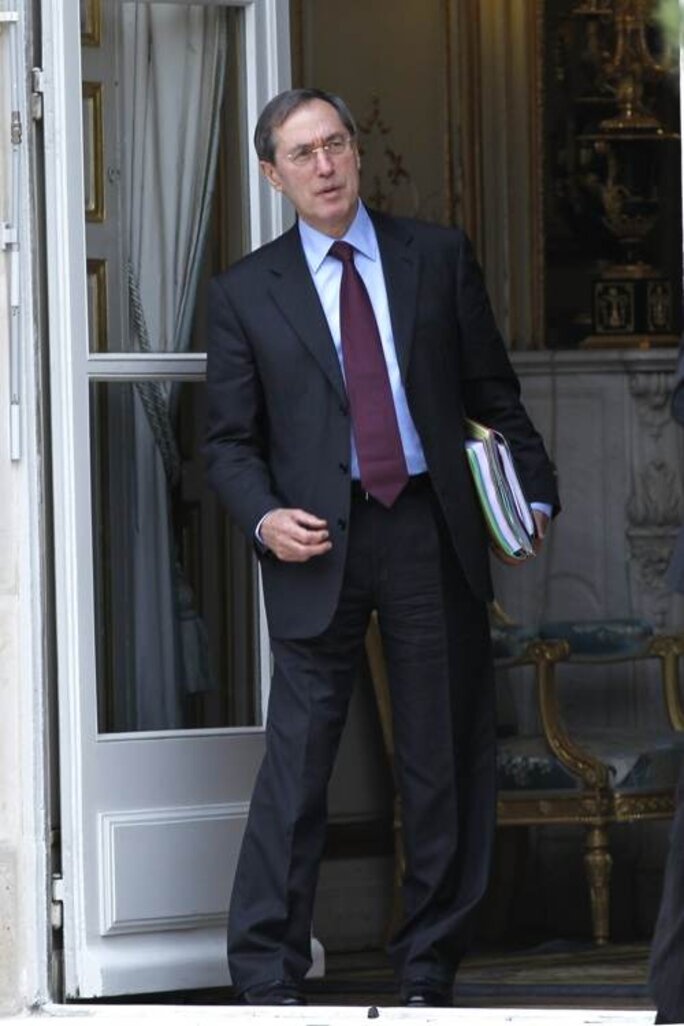Franco-Lebanese arms dealer Ziad Takieddine is a key figure in what has become known as the ‘Karachi affair', involving alleged secret political funding from commissions paid in French weapons sales abroad. A judge leading an independent probe into the suspected scam last month placed Takieddine and two of President Nicolas Sarkozy's close friends and aides under formal investigation in the case. In a series of investigations that began this summer, Mediapart has revealed Takieddine's unusual role as intermediary and advisor in a number of French weapons sales, and his close relationship with several of President Sarkozy's inner circle of friends and advisors. Documents obtained by Mediapart now disclose how the arms dealer was involved in arranging for the French presidency the services of Colonel Muammar Gaddafi to free former hostage Ingrid Betancourt from her FARC captors in Colombia. Fabrice Arfi and Karl Laske report.
-------------------------
Paris-based arms dealer Ziad Takieddine is a prime suspect in an ongoing investigation led by a French magistrate into illegal party funding through sums siphoned off from commissions paid in two major arms deals in the 1990s.
Earlier this month, Takieddine, 61, and two of the president's close entourage, Nicolas Bazire, 54, and Thierry Gaubert, 60, were formerly placed under investigation - one step short of being charged - for embezzlement linked to the suspected the funding scam.
Judge Renaud Van Ruymbeke's investigation centres on the suspicion that illegal kickbacks destined for intermediaries were re-routed to France to fund former Prime Minister edouard Balladur's 1995 presidential election campaign, for which Nicolas Sarkozy was spokesman. But the implications of the evidence emerging from the judge's enquiries goes further than the two weapons deals which were concluded in 1994.
As Mediapart has revealed in a series of investigations (see links bottom of page three), Takieddine continued to play a central role in several weapons sales mounted by senior aides of Nicolas Sarkozy between 2002 and 2009, before and after he became president (1). The aides included former interior minister and now presidential advisor Brice Hortefeux, a longstanding friend of the president, and current interior minister Claude Guéant, formerly the president's chief-of-staff and, during Sarkozy's earlier ministerial career, his principle private secretary.
Documents obtained by Mediapart and reproduced here further reveal the highly unusual role played by Takieddine at the very highest level of political power; they concern his actions in arranging for the intervention on France's behalf of former Libyan leader Muammar Gaddafi in attempts to free Franco-Colombian hostage Ingrid Betancourt from the hands of the FARC guerrilla army in Colombia.
Betancourt, now 49, a former Colombian senator who holds dual French and Colombian nationality, was captured by the Revolutionary Armed Forces of Columbia (FARC) on February 23rd 2002, while she was campaigning as a presidential election candidate. Her plight became a cause célèbre in France and, during her more than six years of captivity, was punctuated by videos released by her captors which showed her health was visibly diminished.
She was finally freed on July 2nd 2008, after a military operation mounted by the Colombian army, and arrived back amongst her family in France two days later, when she was met at her descent from a French military plane by President Sarkozy.

Enlargement : Illustration 1

Between December 2007 and March 2008, President Sarkozy addressed three messages to Betancourt's captors appealing for her release. "We are working very hard for the liberation of Ingrid Betancourt and the President of the [French] Republic is involved daily on this case," said Claude Guéant, then Sarkozy's chief-of-staff (now interior minister) in December 2007, speaking before a parliamentary committee of enquiry into the release from Libya of five Bulgarian nurses and a Palestinian doctor sentenced to life imprisonment for allegedly conspiring to infect children with the HIV virus. Takieddine had played a key role in the French presidency's negotiations for their release.
Guéant told the parliamentarians that Sarkozy had "repeated, all the way through his [presidential] campaign that one of his objectives would be to obtain the liberation of the nurses and the doctor, just as that of Ingrid Betancourt."
Ziad Takieddine's involvement in the Betancourt case began in 2008 after the FARC had refused a French proposition to send a humanitarian mission to Columbia.
An argument for engaging the Libyans as mediators was that the Tripoli regime was one of the FARC's few sources of funds. In an interview earlier this year with German magazine Der Spiegel, Colombian president Juan Manuel Santos said a FARC computer seized by the authorities contained details of an offer by Colonel Gaddafi's regime of a 300 million-dollar loan to the organization.
In a written document dated April 17th 2008, published in full at the end of this article, Takieddine announced he had "the confirmation of Libya's will" that Betancourt be freed "within the briefest time"; The Libyan contribution for a "rapid end" to the problem was, he noted, driven by "the importance given to it by the President of the French Republic". Takieddine raised the idea of a direct contact between Tripoli and Venezuelan President Hugo Chavez, who maintained close links with the FARC.
-------------------------
1:Nicolas Sarkozy was French interior minister, under then-President Jacques Chirac, from May 7th 2002 until March 30th 2004. He became finance minister from March 31st 2004 until November 29th 2004, again under President Chirac. He was re-appointed interior minister, still under the presidency of Jacques Chirac, from June 2nd 2005, until March 26th 2007. Nicolas Sarkozy was elected president of France in 2007, entering office on May 16th 2007.
Hortefeux 'knew nothing' of the plan
In his notes, Takieddine underlined that to set the plan in motion, he above all needed "the agreement of the [French] President for the move" which he suggested could be made by direct contact between President Sarkozy and Gaddafi; "This could be given by a simple phone conversation or thanks for the action, without entering into details, between the two presidents [sic]: to be organized."
Libya's conditions for its involvement included a strict separation of roles. France was to deal with Columbia, and Libya with Venezuela and the FARC. In Takieddine's notes, he summed up the need for "Designation of the person who must manage the case in France, receive information and establish the necessary for France's action with [Colombian] President [Álvaro] Uribe (France being the only one in charge of that side). Libya will intervene directly with President Chavez and the FARC exclusively, while giving France a regular account of everything, to determine what has to be done with Colombia (by France)."
Takieddine urged the "halting of any declaration on this matter by whomever", notably on the French side. Two other conditions he outlined were the suspension of any envisaged armed intervention to free the hostages and that the United States be kept uninformed of the operation mounted by Paris and Tripoli.
Takieddine appeared highly optimistic: "The time [needed] according to my contacts: the liberation [of the hostages] would happen within a maximum of 45 days. This liberation should be made following a plan, in agreement with the parties concerned, or where a French minister (Hortefeux?) would go and fetch her [Betancourt]."

His reference in that note was to Brice Hortefeux, who in April 2008 was immigration minister (before becoming interior minister). Hortefeux, a friend and political servitor of Nicolas Sarkozy for some 30 years, enjoyed close relations with Takieddine, like others in the president's inner circle, as Mediapart has revealed. He appears, notably in photos published by Mediapart, as an occasional visitor to Takieddine's holiday villa at Cap d'Antibes, on the French Riviera, and on his yacht La Diva.
In an article published October 2nd by French weekly Le Journal du Dimanche, Hortefeux admitted having "a professional relationship" with Takieddine, notably during negotiations for a weapons sale to Saudi Arabia in 2003 and 2004, under the management of the French interior ministry when Nicolas Sarkozy was interior minister. Other documents obtained by Mediapart also refer to preparations made by Takieddine for visits by Hortefeux to Libya, in another series of weapons sale negotiations.
Contacted this week by Mediapart about Takieddine's suggestion he might be sent as a special envoy to fetch Ingrid Betancourt after her release, Hortefeux said he had "never heard talk about this scenario".
Gaddafi and son to deal with Chavez and FARC

Enlargement : Illustration 3

Inside the presidential office, the person who managed Takieddine's activities as an intermediary in 2008 was President Sarkozy's then-chief-of-staff Claude Guéant, who is now French interior minister. This was the case in Takieddine's involvement in separate business negotiations with Saudi Arabia, Syria and, again, Libya, as demonstrated in documents already published by Mediapart.
Indeed, in his notes of April 17th 2008, Takieddine refers to Guéant, using only his initials "CG". He raises the issue of Libya's request that a life imprisonment sentence pronounced by a French court in 1999 against Gaddafi's brother-in-law and security chief Abdullah Senussi, for his part in the 1989 bombing of a French UTA airline DC10 passenger plane over Niger, in which 170 people lost their lives, be overturned. He then details other "Libyan projects" and "security contracts: agreement with CG".
In a second document dated April 23rd 2008, Takieddine adds further detail on the plan to free Betancourt. Libya, he wrote, "through the intermediary of [Gaddafi's son] Saif al-Islam and his father", was to establish "the contacts and steps to be taken with President Hugo Chavez and the FARC exclusively" and "to give to France the elements which will help French contacts and moves with President Uribe".
He then details the need for a secure phone line between him and Claude Guéant: "Contact method: the elements supplied will be exchanged in the most secret manner. A secured phone line to help with transmission ZT/CG."
Above: Ziad Takieddine's April 17th 2008 notes (in French only).
In July 2007, Takieddine already had regular contacts with Guéant during the negotiations to free the Bulgarian nurses and Palestinian doctor in Libya, when Takieddine was at the centre of the preparations, even validating official messages sent between France and Libya. However, Guéant did not mention Takieddine's involvement when testifying before the parliamentary committee set up to investigate the details of the negotiations to free the medics.
Neither Claude Guéant nor Ingrid Betancourt replied to Mediapart's request for an interview on the issues raised in this article.
-------------------------
For more on this story and Mediapart's exclusive investigations into the political scandal surrounding the activities of arms dealer Ziad Takieddine, click on the links below:
The arms dealer and his 'friendly' services for UMP leader Copé
French IT group Bull horned by libyan internet espionage deal
French judge finds key evidence in illegal funding probe
British divorcee becomes key witness in French political funding scandal
Net closes in on French presidency after funding 'scam' arrests
Arms dealer probe brings illegal funding scandal closer to Sarkozy
The secret financier who brings danger to the Sarkozy clan
Sarkozy, the arms dealer, and a secret 350 million-euro commission
The well-connected arms dealer and his tax returns
How Sarkozy aides saved arms dealer from paradise island 'death blow'
Exclusive: how Sarkozy's team sought grace for Gaddafi's murderous henchman
The arms dealer and his Paris party for the glitterati
Exlusive: how President Sarkozy's team dealt with Gaddafi
When Total paid the bill for the Elysée's secret emissary
How French intelligence shields the sarkozy clan's unofficial emissary
Divorce court freezes arms broker's assets
The French-built stealth offroader that may be hiding Gaddafi
-------------------------
English version: Graham Tearse


